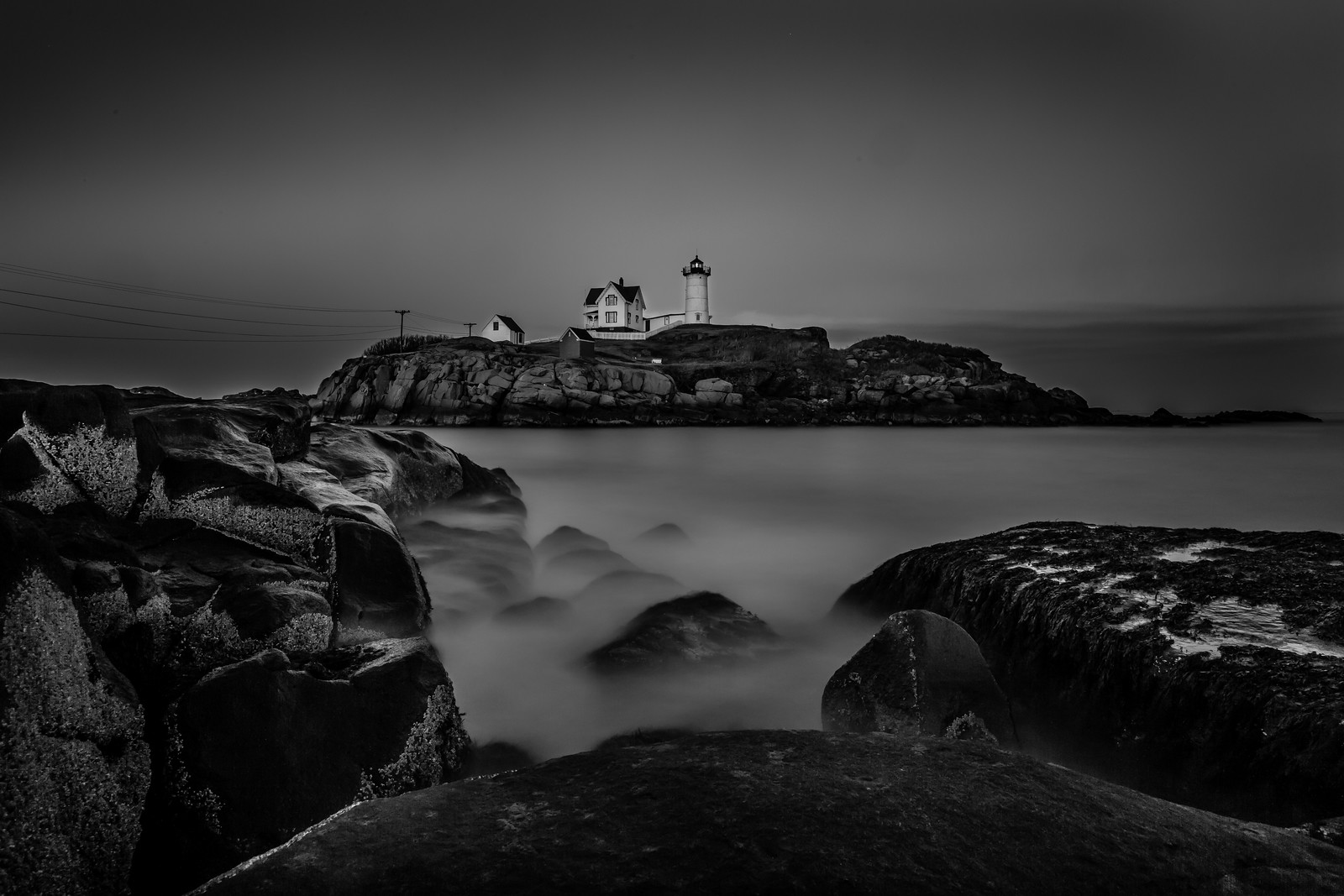By Melissa Marni
There are, inside a deconstructed world, threads of life that must be sewn together in order to make sense. Even then, when the quilt of what is has been stitched, sense may elude the eyes, the ears, the nose, the mind, and only what might be shall remain …
“This tea tastes like boiled rat droppings and pimple puss,” said Henrietta Eider to no one in particular.
She stared out the window with her one good eye—the right one, an old greenish thing not nearly brilliant enough to be called emerald. Tonight the fog was thicker than usual, settling against the sea like an elephantine blanket of spineless, white clouds.
A man, snowy-haired and small, appeared at the doorway of the grand dining room. “Would you like something else? I can make an omelet—”
Henrietta looked up, folded her hands in her lap and sighed with the air of a tired, seventy-something woman living in a perpetual state of grump. “Victor, why on earth would I want an omelet at half past ten?”
He scrunched his nub of a nose and shrugged. “You’re right, as usual.”
“Of course I am.”
“Of course. And should I put the light on tonight, ma’am?”
“We’ll see.”
In the background, music played. An unseen flute warbled a twinkly little melody while a trumpet crooned something low-pitched and sweet. Henrietta thought about how down below, the scattered lights of the city might be twinkling, the sea might be churning in watery gasps against the rocks and how he might, at this very moment, be on his way home.
“Henrietta, promise me you’ll keep the light on and let the music ring until I return …”
“Yes, I promise.”
Twenty six years of music and light and no sign of his boat sliding through the silvery sea, toward everything they’d once built together in a house high above it all.
“I’m going outside to check,” she said, clanking her teacup on its saucer with a final show of ill-will. “Victor, my coat?”
The dutiful butler was already waiting, a taupe top coat outstretched in his hands. Henrietta shrugged into it, wincing as it draped across the steep curve of her arthritis-stricken back.
Outside, the night was hot as expected in early August when the newness of summer turned into a damp, cranky bore. It wasn’t a far walk to the lighthouse and even though she could’ve taken the downstairs hallway to reach it, Henrietta preferred to enter from the back door. It was the very place where he once stood so many times before, leaning against the wood frame and telling her stories about the angry sea and the electrifying adventures he’d had sailing upon it. Then he’d sigh, placing a hand on her chin and assuring her this would be the year he’d take a few months off from work because how lucky a man am I to belong to a woman so wild and free?
But his luck ran dry one overcast, drizzly morning in September when he set sail for his fishing trip, never to stand in that door frame again. Each day since she’d play music from his record collection loud enough so he might hear it and each night she’d turn on the lighthouse so it could help show him the way.
Late every evening, the beacon was lit with the same routine: Victor would ask if they should light it and she’d grumble something like “maybe” or “let’s see” or “I’m not sure yet.” Then she’d step outside in any kind of weather, into the empty darkness, and cry out for Victor to turn on the light.
“Should I put it on tonight?”
It was Victor, bracing himself against the front door, shouting into a leaden wind, his thin comb-over hair slapping across his face. The question swirled untamed just before Henrietta, finally tumbling into the fog-coated waters without so much as a splash.
Or maybe his question had farther still to travel …
At once, Victor’s windblown words turned around abruptly and fell onto her hand instead, changing to dribbles of coffee inside her wrinkled palm. They smelled just like the spicy liquid that filled her ceramic-painted mug at the Café Mon Deu on the first day she met him.
Except maybe she was there now because when she squinted, her left eye was working; her hair was no longer a charcoal gray but the pale blonde of her youth. Her back didn’t crumple from age and instead stood straight as it should. She waited in line quietly, watching him order a coffee, black, inside the small café with no windows and a broken slab of wood for a door.
“Thank you,” he told the cashier, the timbre of his voice deep and bewitching. “Your turn, Miss.”
As the story went, he paused by the table in the back of the café—the one with rosebuds carved along its edges—and spoke to her as she passed, inviting her to dinner and maybe for a quick sail afterward, if she liked that sort of thing.
“Maybe.”
In the next chapter, he followed her outside into the bright sunlight, informing her that impulse was a virtue not often found in many women and did she have any left to put on display?
“Yes,” she said impulsively and they spent the rest of the afternoon drifting through the city, hands entwined. Though in this new version of their tale, she couldn’t see his face clearly because it was made of strange, purple shadows and looked oddly like …“Victor?”
“Ma’am! Are you alright? You fell, blacked out, I don’t know!” Victor’s hands were beneath her head, his tiny nose crinkled with concern.
“I’m fine, Victor, really. It’s this weather. Hotter here than sin.” Henrietta brushed the grass off her coat and stood slowly, again facing the sea.
“Hotter than sin it is,” Victor replied. “And the lighthouse? On or off?”
The choice was hers, this much Henrietta knew, and it wasn’t a question asked in any specific moment but one shifting through time, mocking her with its shapeless abandon. Tonight, she had no answer for Victor. Henrietta turned to face the dark lighthouse, listened to the music that still played from somewhere inside and wondered what life might be like if she could again be so wild and free.
[This story is my second collaboration – read our first one here – with Stephen Ippolito, a professional photographer with an incredible eye for capturing nature at its best. See more of Stephen’s breathtaking work on his website and on Instagram.]


